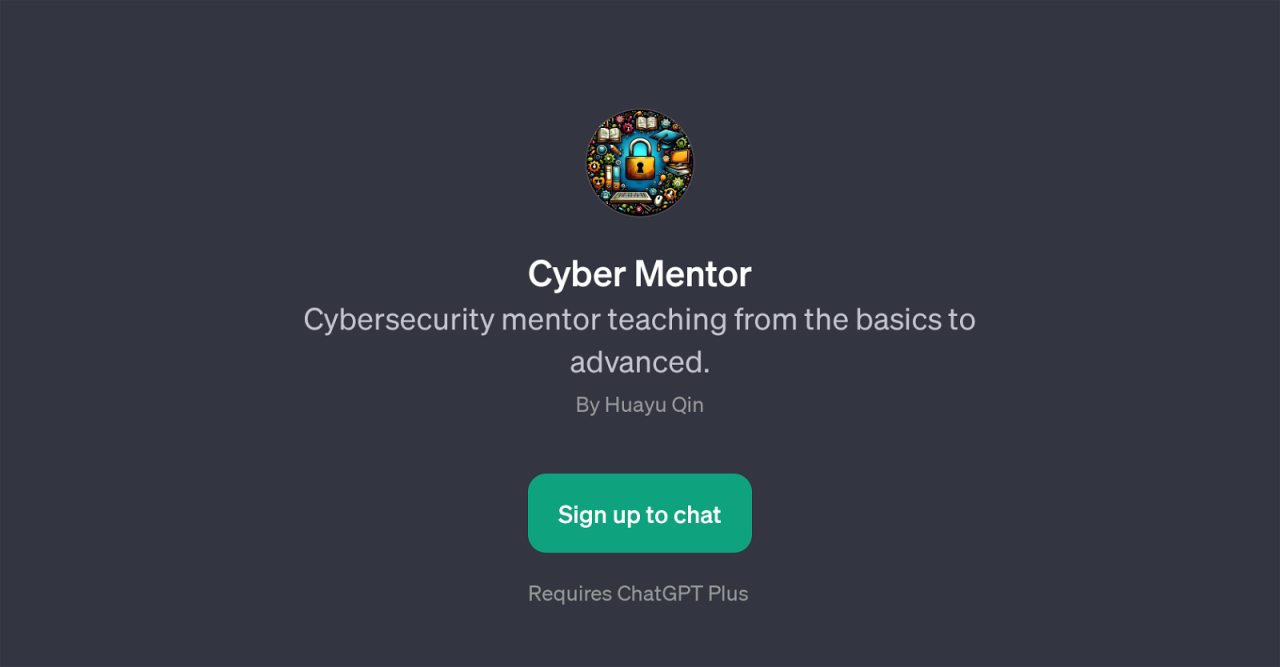
3 Ways to Find a Cybersecurity Mentor
3 Ways to Find a Cybersecurity Mentor – that’s the burning question on many aspiring cybersecurity professionals’ minds. Landing a mentor can be the key to unlocking career success, providing invaluable guidance, and accelerating your professional growth. This post explores three effective strategies to help you find the perfect cybersecurity mentor to guide you on your journey.
Whether you’re a fresh graduate looking to break into the field or a seasoned professional aiming to level up, a mentor’s expertise and insights are priceless. We’ll cover networking at industry events and online, leveraging professional platforms like LinkedIn, and finally, the power of direct outreach and informational interviews. Get ready to connect with experienced professionals and start building your cybersecurity network!
Networking Events and Online Communities

Finding a cybersecurity mentor can significantly accelerate your career growth. Networking effectively, both in person and online, is crucial for building these valuable relationships. This section explores practical strategies for connecting with experienced professionals and leveraging online communities to find the perfect mentor.
Industry events offer unparalleled opportunities to meet cybersecurity leaders and build connections. However, simply attending isn’t enough; a strategic approach is necessary to maximize your chances of finding a mentor.
Effective Networking Strategies at Cybersecurity Events
Attending cybersecurity conferences and workshops is only half the battle; actively engaging and strategically networking is key to finding a mentor. Here are three effective strategies:
First, prioritize quality over quantity. Don’t try to talk to everyone; instead, identify individuals whose expertise aligns with your career goals. Research the speakers and attendees beforehand to pinpoint potential mentors. Second, prepare engaging conversation starters (more on this below). This shows you’re thoughtful and genuinely interested in their experience.
Finally, follow up after the event. Send a brief email thanking them for their time and reiterating your interest in their work. This reinforces your connection and keeps you top of mind.
Reputable Online Communities for Cybersecurity Professionals
Online communities offer a less intimidating and more accessible way to connect with mentors. These platforms provide a space for professionals to share knowledge, ask questions, and build relationships.
Engaging in these communities requires active participation. Contribute meaningfully to discussions, answer questions, and share your own expertise. This will increase your visibility and attract the attention of potential mentors.
So, you’re looking for a cybersecurity mentor? Three great ways are networking events, online communities, and reaching out to professionals on LinkedIn. Building secure applications is crucial, and understanding the evolving landscape of app development, as discussed in this insightful article on domino app dev the low code and pro code future , is vital for any aspiring cybersecurity expert.
Ultimately, finding the right mentor can accelerate your journey in this exciting field.
- Cybersecurity Stack Exchange: A question-and-answer site focused on cybersecurity topics, where you can find experts willing to share their knowledge.
- (ISC)²: The International Information System Security Certification Consortium offers forums and networking opportunities for certified professionals.
- LinkedIn Groups: Several LinkedIn groups dedicated to cybersecurity provide platforms for networking and mentorship.
- Discord Servers: Many dedicated cybersecurity Discord servers offer channels for mentorship and collaboration.
- Reddit (r/cybersecurity): A subreddit where cybersecurity professionals and enthusiasts discuss various topics, share resources, and engage in mentorship.
Benefits of Attending Virtual Cybersecurity Conferences
Virtual conferences have become increasingly popular, offering several advantages for finding mentors. The accessibility of online events allows individuals from diverse geographical locations to participate, expanding the pool of potential mentors. Furthermore, virtual events often offer recorded sessions and networking opportunities, allowing for more flexible engagement. The ability to review presentations and interact asynchronously can enhance learning and networking opportunities compared to in-person events.
Conversation Starters for Cybersecurity Events
Initiating contact with potential mentors can feel daunting, but a well-crafted conversation starter can break the ice. Here are three effective approaches:
These conversation starters are designed to be open-ended and encourage further discussion. Remember to actively listen and show genuine interest in their responses.
- “I’ve been following your work on [specific topic] and I’m particularly impressed by [specific achievement]. I’d love to hear more about your experience in that area.”
- “I’m currently working on [project/skill] and I’m looking for advice on [specific challenge]. Your expertise in [area] would be invaluable.”
- “I’m very interested in [specific area of cybersecurity] and I was hoping to get your insights on the current trends and challenges in this field.”
Leveraging Professional Platforms and Resources

Finding a cybersecurity mentor doesn’t solely rely on chance encounters. Strategic use of professional platforms and resources significantly increases your odds of connecting with experienced professionals who can guide your career. These platforms offer structured mentorship programs and provide access to a wider network of experts than informal methods.
Professional platforms offer a more formal and structured approach to mentorship, often with established programs and support systems. They provide opportunities to connect with professionals who are actively seeking to mentor, and who have a vested interest in the growth of the cybersecurity field. This structured approach complements the more organic networking found at events and online communities.
Crafting a Compelling LinkedIn Profile
Your LinkedIn profile is your digital resume and networking hub. To attract potential mentors, ensure it showcases your skills, experience, and aspirations clearly and concisely. A strong headline, a professional headshot, and a detailed summary highlighting your cybersecurity interests and career goals are crucial. Use s relevant to your desired mentorship area (e.g., “ethical hacking,” “cloud security,” “incident response”) to increase your visibility in searches.
Quantify your achievements whenever possible – instead of saying “improved security,” say “reduced security incidents by 20%.” Actively engage with content related to cybersecurity, comment thoughtfully on posts, and join relevant groups to demonstrate your passion and knowledge. Finally, highlight any relevant certifications or projects to showcase your expertise and commitment to the field.
Professional Cybersecurity Organizations Offering Mentorship
Finding a mentor can be facilitated by joining professional organizations that actively promote mentorship. These organizations often have established programs or connect members with mentors through networking events and online forums.
| Organization Name | Membership Benefits | Mentorship Opportunities | Website URL |
|---|---|---|---|
| (ISC)² | Access to certifications, training resources, and a global network of cybersecurity professionals. | Formal and informal mentorship opportunities through chapter events and online forums. | www.isc2.org |
| ISACA | Access to certifications, publications, and a global network of IT audit, control, security, and governance professionals. | Mentorship programs are often offered through local chapters and online communities. | www.isaca.org |
| SANS Institute | Access to security training courses, certifications, and a vast online community. | While not explicitly stated as a formal program, the extensive network and community often lead to mentorship opportunities. | www.sans.org |
| (AIS) Association for Information Systems | Focuses on the broader IS field, but includes a significant cybersecurity component. | Mentorship opportunities may be found through conferences, publications and online communities. | www.aisnet.org |
| OWASP | Focuses on web application security. | Mentorship opportunities arise organically through collaboration on projects and participation in the community. | owasp.org |
Comparing Mentorship Opportunities on Professional Platforms
The mentorship opportunities provided by different platforms vary. Some, like (ISC)², offer structured programs with assigned mentors, while others, such as SANS, rely more on organic networking within their large communities. LinkedIn offers a more flexible approach, allowing individuals to directly connect with potential mentors based on their profiles and shared connections. The choice depends on your preferred level of structure and the type of mentorship you seek.
A structured program may be preferable for those seeking a formal guidance framework, while a more organic approach may suit those who prefer a less formal, more flexible relationship.
Advantages of Using Professional Networking Sites
Professional networking sites like LinkedIn offer several advantages in identifying and connecting with experienced cybersecurity professionals. They provide a centralized platform to search for individuals with specific expertise, review their professional background and accomplishments, and initiate contact. The ability to view mutual connections can significantly increase the chances of a successful introduction or connection. Furthermore, engagement with content and participation in relevant groups can help build credibility and increase visibility, making it easier for potential mentors to find you.
Finally, the ability to track interactions and manage relationships within the platform contributes to the ongoing development of the mentorship relationship.
Illustrative Examples of Mentor-Mentee Relationships: 3 Ways To Find A Cybersecurity Mentor

Finding a mentor can be transformative in a cybersecurity career. The right mentor can provide invaluable guidance, support, and connections, accelerating your professional growth and helping you navigate the complexities of the field. Let’s explore some examples of successful mentor-mentee dynamics and how mentorship can be structured for maximum impact.
A Mentor’s Assistance in Overcoming a Career Challenge, 3 ways to find a cybersecurity mentor
Imagine Sarah, a junior security analyst struggling with a particularly complex incident response. She’s facing a sophisticated malware attack and feels overwhelmed by the technical challenges and the pressure to contain the breach quickly. Her mentor, David, a seasoned incident responder, patiently guides her through the process. He doesn’t simply provide solutions; instead, he encourages Sarah to think critically, asking probing questions that help her identify the root cause of the attack and develop a remediation strategy.
He shares his experience with similar incidents, emphasizing the importance of methodical investigation and detailed documentation. Through David’s guidance, Sarah successfully resolves the incident, gaining invaluable experience and boosting her confidence significantly. The experience reinforces her problem-solving skills and deepens her understanding of incident response methodologies. This mentorship helped Sarah avoid burnout and significantly improved her performance and career trajectory.
A Successful Mentor-Mentee Relationship in Cybersecurity
Consider the relationship between Anya, a cybersecurity consultant specializing in penetration testing, and Ben, a recent cybersecurity graduate. Anya, recognizing Ben’s potential, offered to mentor him. Their relationship spanned over two years. Anya provided Ben with practical advice on building his professional network, helped him refine his resume and interview skills, and introduced him to several contacts in the industry.
She also shared insights into the nuances of penetration testing, guiding him through advanced techniques and ethical considerations. Ben, in turn, provided Anya with fresh perspectives and kept her abreast of emerging technologies. This reciprocal relationship fostered mutual growth. Anya benefited from Ben’s enthusiasm and the opportunity to reflect on her own experiences, while Ben gained invaluable experience, career advancement, and a strong professional network, leading to his securing a position at a leading cybersecurity firm.
A Six-Month Mentorship Program Structure
A well-structured mentorship program can significantly enhance the mentee’s development. A six-month plan could look like this:
This plan Artikels a structured approach, allowing for flexibility and adaptation based on the mentee’s progress and specific goals.
- Month 1: Goal Setting and Skill Assessment. The mentor and mentee collaborate to define specific, measurable, achievable, relevant, and time-bound (SMART) goals. A skills gap analysis is conducted to identify areas needing improvement.
- Month 2: Skill Development and Resource Identification. The mentee focuses on developing skills identified in the previous month, utilizing resources suggested by the mentor (online courses, books, conferences). Regular check-ins ensure progress is on track.
- Month 3: Networking and Exposure. The mentor facilitates networking opportunities, such as introductions to professionals in the field or participation in industry events. The mentee begins applying their enhanced skills in practical scenarios.
- Month 4: Project Application and Feedback. The mentee undertakes a small project, applying the skills learned. The mentor provides regular feedback, guiding the mentee towards refinement and improvement.
- Month 5: Career Planning and Strategy. The mentor helps the mentee develop a career roadmap, considering long-term goals and potential career paths. This includes refining their resume and preparing for potential job interviews.
- Month 6: Review and Next Steps. The mentee and mentor review the progress made against the initial goals. A plan for continued development is established, considering ongoing support and future collaboration.
Final Thoughts
Finding a cybersecurity mentor doesn’t have to be daunting. By strategically utilizing networking events, professional platforms, and direct outreach, you can significantly increase your chances of connecting with experienced professionals who can guide and support your career aspirations. Remember, building genuine relationships takes time and effort, so be persistent, be proactive, and most importantly, be yourself! The right mentor is out there waiting to connect with you – go get ’em!
Frequently Asked Questions
What if I don’t know any cybersecurity professionals?
Start by attending online events or joining online communities. Even small interactions can lead to valuable connections.
How do I know if someone is a good mentor for me?
Look for someone with experience in an area you’re interested in, who is approachable and willing to share their knowledge.
What if my mentor is too busy to help me?
Be respectful of their time and schedule. Prepare concise questions and be mindful of their availability. A short, focused interaction is better than none.
How often should I check in with my mentor?
This depends on your relationship and agreement. Regular check-ins, perhaps monthly or quarterly, are usually beneficial.
